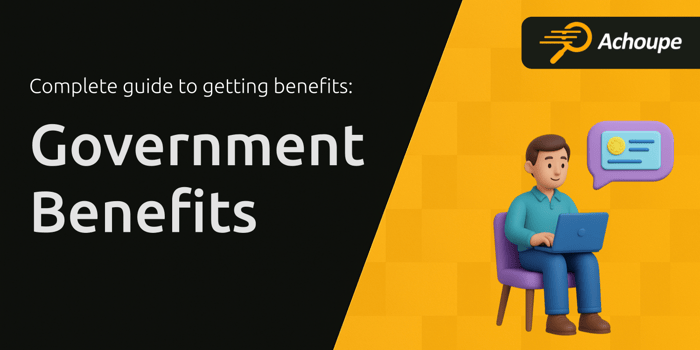In todays ever-evolving economic landscape, government benefits play a pivotal role in providing financial assistance and support to eligible individuals and families.
These benefits are structured to offer both income replacement and supplemental income to alleviate poverty and ensure income security, thus maintaining or improving living standards.
Understanding government benefits is crucial, especially if youre navigating a period of financial instability or are curious about the social safety nets available for those in need.
With various programs offering financial aid, from Social Security to Medicaid, the landscape can be daunting but understanding its framework can significantly aid potential recipients.
- Social Security, Medicare, Medicaid.
- Supplemental Nutrition Assistance Program (SNAP).
- Housing subsidies and assistance programs.
- Disability and old-age pensions.
- Unemployment compensation.
- Child care and education assistance.
This guide will walk you through the benefits, eligibility, and application process for government assistance, while also weighing the pros and cons, to provide comprehensive insights into these critical programs.
Benefits of Government Benefits
Government benefits are crucial in providing income replacement and supplementation, playing a significant role in reducing poverty and enhancing income security.
Here’s a breakdown of different types of benefits available:
Target Audience for Government Benefits
Government benefits cater to a diverse audience of individuals and families, often aiming to assist those in financial distress or who require support due to various life circumstances.
- Low-income individuals and families.
- Elderly individuals.
- People with disabilities.
- Unemployed individuals.
- Veterans.
While these programs are designed with specific eligibility criteria in mind, they aim to support those most in need, ensuring that no one is left without basic necessities during critical times.
Pros and Cons of Government Benefits
As with any widespread system, government benefits have their strengths and drawbacks. While they provide critical financial assistance and economic stability, they can also encounter challenges related to eligibility and efficiency.
Pros
-
Reduction in Poverty and Inequality
Government benefits offer vital financial support to vulnerable populations, significantly reducing poverty rates and income inequality.
-
Economic Stability
By supporting aggregate demand during economic downturns, these programs help stabilize economic conditions.
-
Access to Critical Services
Facilitates the provision of essential services, such as healthcare, housing, and nutritional support, for low-income families.
Cons
-
Complex Eligibility Criteria
The requirements for some programs can be intricate, potentially excluding individuals genuinely in need of support.
-
Stigmatization and Discouragement
Means-testing can sometimes carry stigma or discourage beneficiaries from saving due to fear of benefit reduction.
-
Administrative Hurdles
Delays or errors in administration can make the timely access to benefits tricky for some beneficiaries.
Why We Recommend Government Benefits
At Achoupe, we advocate for understanding and utilizing government benefits due to their profound impact on improving individual and community welfare.
These programs are not only instrumental in bridging financial gaps but also in fostering a sense of security among beneficiaries.
Moreover, the reliability of these programs, backed by rigorous legislative frameworks, provides a dependable backbone to societal economic structures.
- Ensure financial security during economically challenging times.
- Provide access to essential services which can be critical for low-income families and individuals.
- Contribute significantly to the reduction of poverty and enhancement of social stability.
Frequently Asked Questions about Government Benefits
What are government benefits?
Government benefits, also referred to as public assistance or welfare, are support programs by governmental entities designed to provide financial aid and services to eligible individuals and families, aiming to cover basic living needs.
Who is eligible for government benefits?
Eligibility varies across different programs but generally includes considerations such as income levels, age, disability, employment, or veteran status.
How to apply for government benefits?
Applications can typically be made through state social service agencies or dedicated online portals. Guidance is often available to assist in checking eligibility.
Are government benefits reliable?
Yes, government benefits are typically backed by legislation and administered by government agencies, ensuring consistent support, although occasional issues with payment timings or administrative errors may arise.
Final Considerations
Understanding the landscape of government benefits is crucial for anyone encountering financial hardships or anticipating potential economic challenges.
These programs offer critical support and serve as a key pillar of economic security.
At Achoupe, we emphasize the significance of informed decision-making in financial matters, advocating for full utilization of available support systems to ensure financial well-being and social stability.










